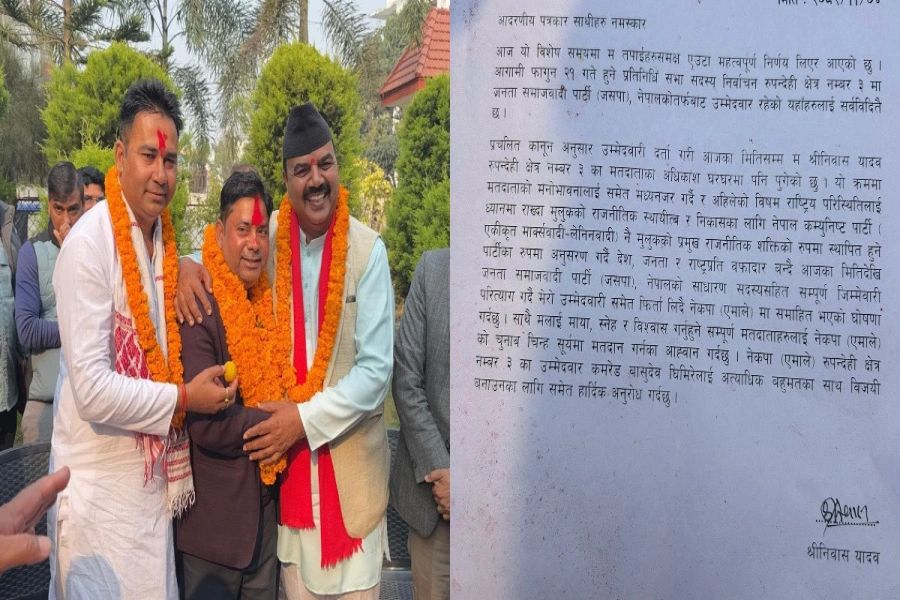Nepalis going to Malaysia and Gulf states seeking gainful employment have had to face multiple problems. First, they are cheated by the so-called manpower agencies back home, which promise them lucrative jobs, exact high amount of money from the innocent job aspirants and send them to the countries—some of them even blacklisted by the government of Nepal. In the host countries, these workers are cheated again by the recruiting companies. Some of them are denied payments for months on end and others are compelled to return home empty-handed. In the recent times, however, Ministry of Labor Employment and Social Security has been taking up much-needed steps to end the anomaly in foreign employment sector. Since he took office as Minister Labor Employment and Social Security, Gokarna Bista has initiated measures to make the foreign employment sector friendlier toward Nepali workers. For example, he arranged for providing labor permits from seven provinces. In October, the government signed a labor agreement with Malaysia, which among other things, has made it mandatory for employers to pay for cost involved in recruitment process abiding by zero cost recruitment policy of the government. Nepali workers had long been forced to pay exorbitant fees to layers of agents including outsourcing companies hired by Malaysia to provide visa processing service, and security and health screening.
Foreign employment will be made reliable, systematic and safe:...

Now Department of Foreign Employment has prohibited as many as 53 Malaysian companies from hiring Nepali workers due to their ‘dismal track record.’ Total of 67 companies—including four Qatari companies, and five companies each from Saudi Arabia and the United Arab Emirates—have been blacklisted. DoFE took this measure after receiving hundreds of complaints against the companies regarding nonpayment of salaries, and abuse and exploitation of migrant workers. The DoFE has suspended the hiring process for these companies and they will remain blacklisted until they act upon the complaints of the workers. Such measures are expected to go a long way in bringing down the cases of abuses and exploitation of Nepali workers. While these measures are welcome, there is much to do to safeguard the rights of Nepali workers in foreign countries, for fact remains that complaints regarding abuse, exploitation and non-payment continue to pour in. Nepali workers are still working under the harsh and inhospitable conditions in foreign lands.
On April 1, 2018, shortly after taking office, Gokarna Bista had pledged “visible reforms in foreign employment sector” in an interview with Republica. Among other things, he had promised to “break entrenched nexus of so-called manpower agencies affiliated with various political parties” in Nepal which have been “found to put workers in a difficult situation.” Bista seems to be working along that line although workers have been expressing concerns over delays in lifting ban on workers from going to Malaysia. In May, the government had halted recruitment process for Malaysia to mount pressure on authorities there to sign the labor agreement. Manpower companies claim that Bista is putting the recruitment process on hold on behest of middlemen looking to take over business from Nepali agents of Malaysian companies here. These are serious allegations that Bista should clarify. That aside, Ministry of Labor Employment and Social Security and Department of Foreign Employment have been launching some noteworthy measures to make foreign employment more reliable and systematic. But they should do more to ensure that Nepali workers do not face various types of discrimination and exploitation abroad and they are exploited by manpower agencies back home. Nepali migrant workers are sustaining our economy with their blood and sweat. Their security and wellbeing should always remain our topmost priority.








_20220130160610.jpg)



























